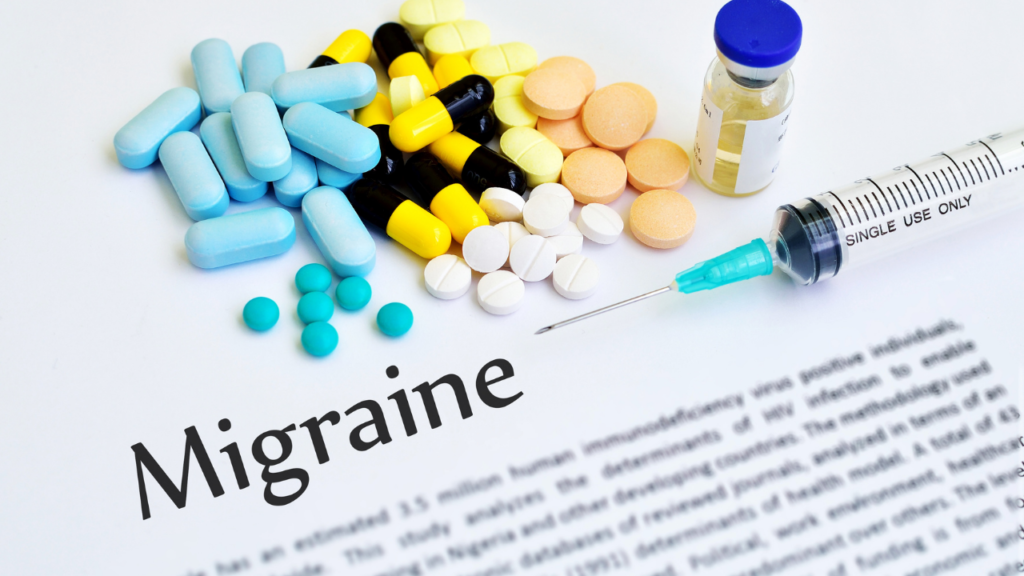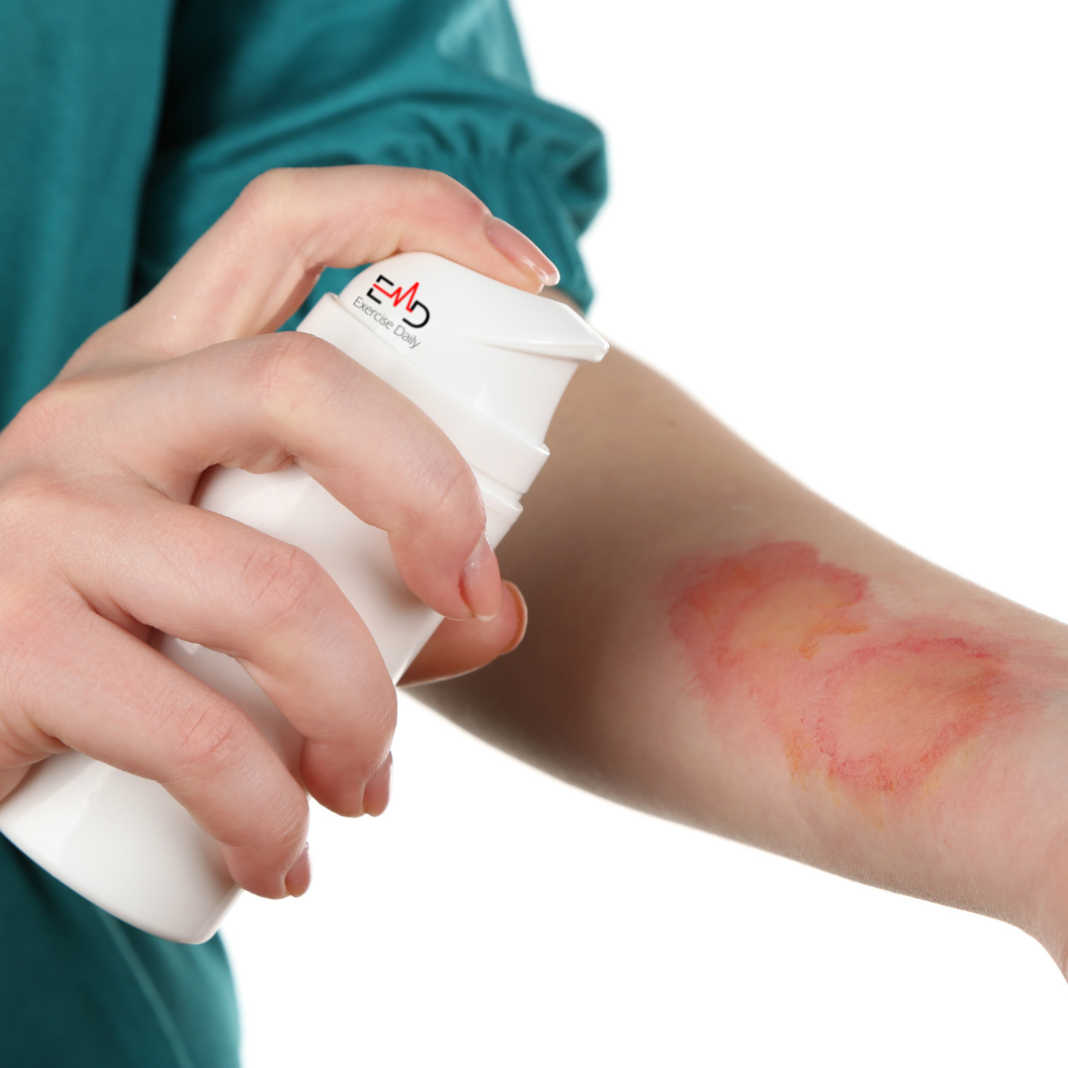Exercise Daily – People who suffer from migraines often ask, “can high blood pressure cause migraines.” The answer can be Yes and No. However, let’s have a look at it thoroughly.
A history of recurrent migraine episodes may indicate that you have high blood pressure, generally known as hypertension. However, migraine sickness itself may increase your chance of getting high blood pressure.
Researchers are striving to completely understand the relationship between high blood pressure and migraine; it is unknown if one causes the other or whether there is another element that may cause them both.
No matter what the situation may be, it’s critical for everyone who has high blood pressure to get it under control, and this is especially true for those who have additional risk factors for heart disease, also including migraine.
What is high blood pressure, and how does it affect you?
BP stands for blood pressure and refers to the pressure exerted by our blood on the walls of our blood arteries as it is pushed through the body by the heart.
It is expressed as two numbers, for example, 120/80; the first is the systolic pressure, which is the high pressure experienced by the heart when it is at its strongest point of contraction, and the second is the diastolic pressure, which is the pressure experienced at the point of the heartbeat when the heart is at its most relaxed.
We discuss high blood pressure, also known as hypertension since it can raise our chance of developing some dangerous diseases, as well as because it can be a symptom that something is wrong with the body’s internal organs.
According to standard definitions, high blood pressure is anything more than 140/90, while the suggested threshold for treatment may be lower in at-risk persons, and health authority standards may alter in response to new information.
So, it is important to understand high blood pressure before reaching a conclusion about “can high blood pressure cause migraines.”
Evidence In Favor of High Blood Pressure and Migraine

Researchers are still debating whether elevated blood pressure is a contributing factor to headaches.
According to a report published in the Iranian Journal of Neurology, headaches caused by high blood pressure often affect both sides of the head at once.
With physical exercise, the headache pain often becomes more intense and pulsates more frequently.
In accordance with the scientists, high blood pressure can result in headaches because it has an adverse effect on the blood-brain barrier.
Excess pressure on the brain as a result of hypertension can cause blood to leak from the blood vessels.
Because the brain is enclosed within the skull and does not have room to grow, this results in edema or swelling, which is troublesome.
Swelling puts additional pressure on the brain, resulting in symptoms such as a headache, dizziness, nausea, confusion, weakness, seizures, and impaired vision, among others.
After receiving therapy to decrease their blood pressure, most people see an improvement in their symptoms within an hour.
Evidence in Opposition to High Blood Pressure and Migraine
Since we are discussing “can high blood pressure cause migraines,” there are some oppositions to it as well.
According to the American Heart Association, most people do not feel headaches when their blood pressure is elevated unless their blood pressure rises above 180/120.
People who suffer from frequent headaches have also been studied to see if this has an effect on their cardiovascular system as a whole.
Research published in the American Journal of Hypertension tracked 1,914 persons with hypertension for 30 years, during which time their headaches were recorded and analyzed.
The findings revealed that there was no association between the frequency with which headaches occurred and the mortality rate from cardiovascular causes.
As a result, there is little evidence that persons who suffer from recurrent headaches that are not associated with high blood pressure would develop cardiac issues.
It is hypothesized by the researchers that headaches may indicate the need for therapy and increase the likelihood that patients will take antihypertensive drugs if they are prescribed.
In What Way Does a Headache Feel When You Have High Blood Pressure?
Headaches associated with high blood pressure frequently feel like a hammering, tight, or banging pain, sometimes accompanied by an ‘aura’ similar to that of a migraine headache.
It is possible that a headache or migraine associated with severely high blood pressure can cause additional symptoms such as dizziness, nausea, chest discomfort, and feelings of fear or panic in addition to the headache or migraine.
If you are wondering about “can high blood pressure cause migraines” and how does it feel like, then this section is for you.
Migraines may be extremely severe headaches, and they are frequently accompanied by an ‘aura,’ which are sensations or abnormalities in vision that arise before the more common symptoms develop on the headache.
With migraines, people report seeing flashing lights, being sensitive to light and sound, feeling nauseated, and feeling sick.
When compared to headaches, migraines are more likely to have these additional symptoms, which can include visual and hearing problems as well as problems in other sections of the body, in addition to the more localized headache.
In some cases, a headache can be exceedingly painful, but in general, individuals report that the pain associated with migraines is worse than that of most other headaches.
Managing Migraines in the Comfort of Your Own Home

People who suffer from migraines on a regular, frequent, or uncontrollable basis should consult with their doctor.
At the same time, the doctor should take their blood pressure to rule out any possible relationship between their symptoms and high blood pressure that should be addressed.
Some people who suffer from migraines may discover that they may pinpoint triggers; for example, some people have headaches after eating specific foods, after experiencing hormonal changes, after being sick, after experiencing stress, or after encountering worry.
Overthinking about can high blood pressure cause migraines is not a way to manage your migraines.
Recognizing and managing these triggers, or at least anticipating the likelihood of a migraine, can be beneficial when it comes to managing migraines.
A migraine attack may be difficult to manage since it is such a personal experience; many individuals find that staying in a darker room or attempting to sleep might be beneficial.
Simple pain relievers such as paracetamol should be used as soon as the symptoms appear, as this will assist in minimizing the overall intensity of the migraine.
Alternatively, if basic home management of migraine is not effective, or if they are frequent and severe enough to have an impact on your daily life, a doctor may recommend further investigations or prescribe stronger migraine therapy.
It is also possible to be administered nausea and vomiting medicine if the patient is experiencing nausea and vomiting.
Treatments for Migraines and Headaches
There are several ways to cure headaches, from over-the-counter (OTC) drugs to lifestyle modifications to alternative therapies.
It is crucial not to self-diagnose the reason for frequent or persistent head discomfort, even if you are otherwise healthy. The following are safe for otherwise healthy people.
Your doctor will evaluate your symptoms, health history, and other factors in order to accurately diagnose any underlying causes of your headaches and collaborate with you to develop a treatment plan.
So, since you know about “can high blood pressure cause migraines,” let’s take a look at some treatments for it.
Medication
There are two primary categories of drugs that you may use to treat different types of headaches:
Over-the-counter pain relievers
Headaches and moderate migraines may go away by using acetaminophen (Tylenol), aspirin, ibuprofen (Advil, Motrin), or naproxen (Aleve) as needed by the patient.
However, you should not use them on a regular basis for an extended length of time because some of them might cause difficulties, such as ulcers or other gastrointestinal disorders.
Beta-blocker medications
Propranolol is a blood pressure medicine that doctors may give to those who suffer from recurrent migraines (Inderal, InnoPran). These can help to alleviate the sensation of pressure in the head.
Reduce your stress
In adults, stress may have a role in the development of both headaches and migraines.
While stress is an unavoidable aspect of everyday life, learning how to handle it may be beneficial. Take into consideration the following:
Therapy
According to some data, cognitive behavioral therapy (CBT) may be effective in alleviating the symptoms of headaches or migraines. CBT teaches how to recognize and confront incorrect thinking, which may be beneficial in the management of stress.
Techniques for relaxation
Meditation tends to be effective for treating tension headaches and migraines, while aromatherapy using lavender essential oil looks to be effective in reducing the intensity of migraines. Both of these routines are also effective in reducing stress.
Relaxation techniques are the best cure and the best way to find out can high blood pressure cause migraines.
Yoga
Many people find that engaging in this mind-body activity helps them to feel less stressed. Yoga may also help to reduce the frequency, duration, and intensity of tension headaches, according to certain research findings.
Caffeine inhibition
Although a small amount of caffeine is OK and may even have beneficial effects on headaches in some people, a large amount of caffeine may cause migraines or headaches in others.
It is also possible to have head discomfort as a result of caffeine withdrawal. It occurs when you rapidly reduce or totally discontinue caffeine use.
If you suffer from regular headaches, you should think about how much caffeine you take on a daily basis through liquids such as coffee, soda, and tea, among other things.
You should reduce caffeine consumption if you feel it is a contributing factor to your headaches.
Various other Ways of Treatment
Other options for treating headaches include:
- Avoid or limit your use of alcoholic beverages
- Get rid of your cigarettes
- Participate in frequent physical activity
These things may also be beneficial in the management of high blood pressure as an added bonus.
Best Products for Treating Migraine
Stress Therapy Electric Eye Massager
TheraICE Rx Form Fitting Gel Ice Headache / Migraine Relief Hat
Headache and Migraine Relief Cap
Can High Blood Pressure Cause Migraines – FAQs
How do you get rid of high blood pressure Migraines?
Headache medications that are available over-the-counter include aspirin and ibuprofen. Do not use aspirin until your blood pressure is currently under control, and only if necessary.
The Mayo Clinic recommends daily aspirin treatment for some persons who are at an increased risk of stroke.
How do you feel when you have high blood pressure?
People who have high blood pressure may have a pounding sensation in their head or chest, as well as lightheadedness.
People who have high blood pressure may go years without realizing they have the problem if they don’t have any symptoms.
How can I lower my blood pressure instantly in an emergency?
It’s best to stay calm. Even though it may be difficult when you are anxious, remember that remaining calm can help lower blood pressure. Take a seat and concentrate on your breathing. Inhale deeply and hold for a few seconds before exhaling.
Does anxiety cause high blood pressure?
Anxiety does not create high blood pressure over a long period of time. However, anxiety attacks can result in substantial, transitory increases in your blood pressure levels.
Conclusion
After reading this article, we hope your query about “can high blood pressure cause migraines” is being answered.
When it comes to high blood pressure, there is always cause for concern. However, with the proper diagnosis and treatment plan in place, you can control it in a number of different ways.
Headaches that are frequent and recurrent might also be a source of worry. It is critical to determine the source of the headaches, just as it is with any medical ailment.
Regardless of whether you feel that your high blood pressure is a direct cause of your headaches, you should consult with your doctor about the symptoms you’re having.
It is possible to make some lifestyle changes that will have an influence on both high blood pressure and headaches. Taking a stroll in the early morning might help to enhance circulation while also reducing stress.
Increasing your intake of green, leafy vegetables and anti-inflammatory meals is another approach to ensure that your blood pressure remains stable.
When it comes to heart health, potassium and magnesium are two crucial minerals to have in your diet. Make sure you are well aware and that you take any drugs that your doctor suggested you.




